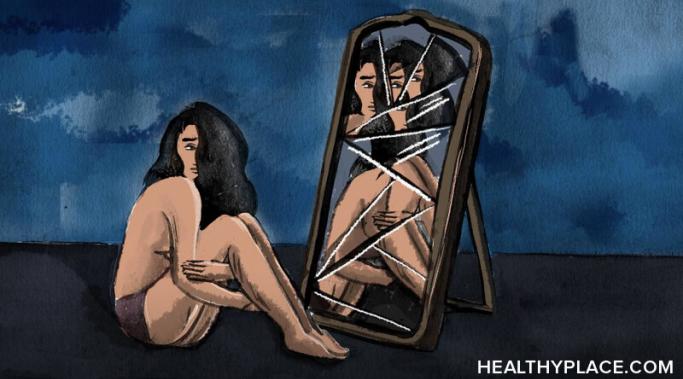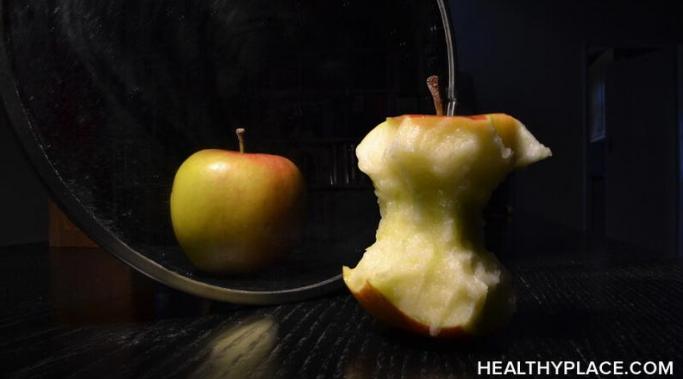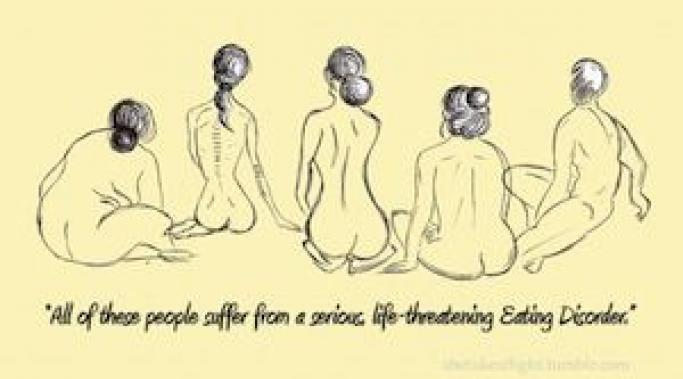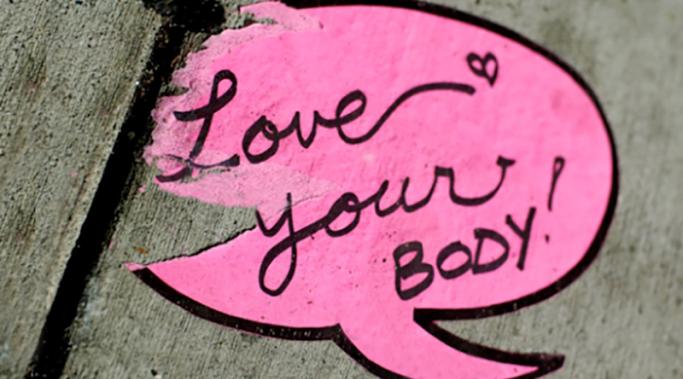I recently bought a deck of cards full of question prompts, and one of the first question cards I drew was, "What is your vice?" The answer that surfaced for me was familiar: food. I will always be conscious about food, even in times of ease in my recovery. Sometimes this reality is frustrating, and I envy the people around me who seem to enjoy food without stress or guilt. I also learn about the depths of myself from the healing process. The lessons I've taken from binge eating disorder remind me that there's always more to uncover about myself and eating disorders like binge eating disorder (BED).
Body Image and Binge Eating Disorder
I was introduced to the power of intuitive eating during my second attempt at eating disorder recovery. Before then, I was aware of my binge eating disorder, but I still restricted my food and shamed myself when I binged. I'd reached a point where I knew that something had to change, but I didn't know how to change it.
Maybe you've known for a while that your binge eating disorder (BED) is out of control. Starting BED recovery can be confusing, and the steps you need to take are difficult to navigate on your own. When you're struggling to make it through each day without bingeing, it's difficult to create a fresh perspective. So how do you begin to recover from binge eating?
A recent conversation with a friend made me consider what I wish I'd known about eating disorder (ED) recovery. The other day, I asked my friend, "What do you think your younger self would have thought of older you?" We retraced our steps down the hill through the snow on our way back to the trailhead. She said, "I think she would have been so surprised. I don't think I ever expected I would move away from my hometown."
Refraining from summer binge eating can be challenging if you are in binge eating disorder recovery. As temperatures rise, the media heaps on the pressure to have the perfect "beach body," routines go out the window, and co-occurring mental health issues such as anxiety and depression may arise — all of which can trigger summer binge eating.
Like many sufferers of binge eating disorder, I struggled with loving my body and other body issues for many years. As a child, I loved food and books and was not a fan of exercise. I was never fat, but I was chubby enough to be teased by the boys at school. As an awkward teenager, magazines taught me how to hate my body.
Body dysmorphia and binge eating disorder (BED) often go hand in hand. Body dysmorphia is characterized by having an obsessive preoccupation with one's appearance as well as being unable to see one's body the way it is in reality (Body Dysmorphic Disorder (BDD) Signs, Symptoms and Causes). Many times in binge eating disorder, body dysmorphia causes us to see ourselves as much larger than we really are. Finding awareness of these tendencies is a big step toward wellness from binge eating disorder.
There is a common misconception that an individual with binge eating disorder has a certain body type (What Does Binge Eating Disorder Look Like?). When it comes to binge eating disorder, as well as other eating disorders, there is not one way a person's body will look. You cannot tell just by looking at someone whether or not they struggle with an eating disorder of any type. Body type and binge eating disorder are not necessarily linked.
Binge eating disorder (BED) can take a toll on your body image. This can happen even when there is virtually no weight gain involved during your time of engaging in BED behaviors. When dealing with binge eating, I was living an active lifestyle so I did not experience a dramatic weight shift but it did make a difference as to how I felt about my body. Even with binge eating disorder our body image is all in our heads, so let’s be gentle with ourselves and remember to love the skin we are in (What is Body Image and How Do We Improve It?).
If you undergo weight loss surgery, you need to set realistic expectations. When I first started considering gastric sleeve weight loss surgery in order to help treat my binge eating disorder, I didn't have realistic expectations for the weight loss surgery. My goals and my thinking had to be adjusted to suit reality.









